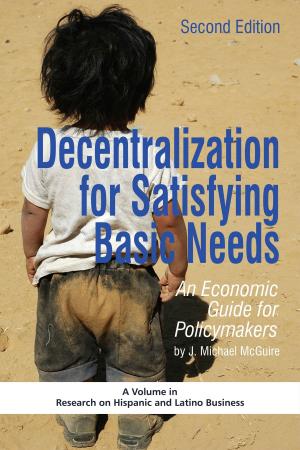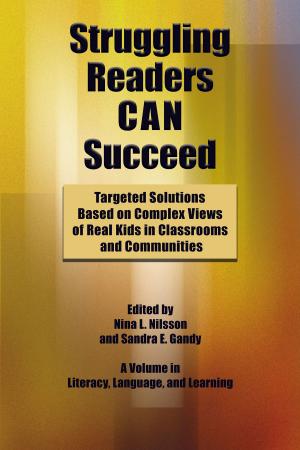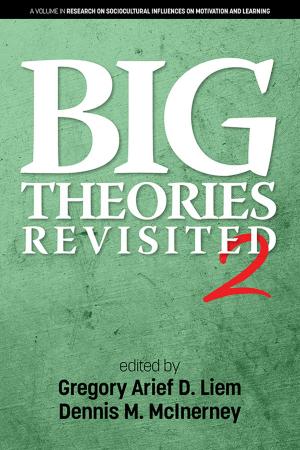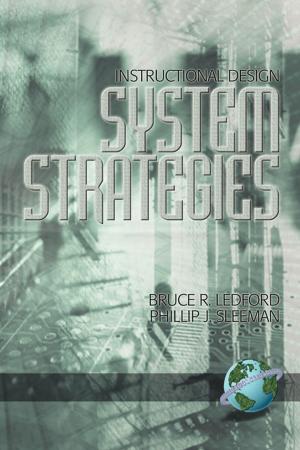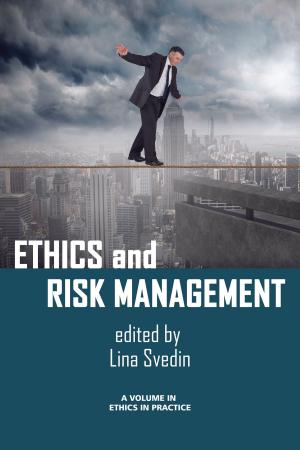Combat Zone
The Continuing War against the Public Schools
Nonfiction, Reference & Language, Education & Teaching, Educational Theory, Educational Reform, Administration| Author: | Arthur Shapiro | ISBN: | 9781641133517 |
| Publisher: | Information Age Publishing | Publication: | July 1, 2018 |
| Imprint: | Information Age Publishing | Language: | English |
| Author: | Arthur Shapiro |
| ISBN: | 9781641133517 |
| Publisher: | Information Age Publishing |
| Publication: | July 1, 2018 |
| Imprint: | Information Age Publishing |
| Language: | English |
Although in plain sight daily, a highly successful war against the public schools has been hidden in the shadows of public consciousness. Only very recently have several people written articles about this war, with the only book calling it a war being written in 2002. Neither the public nor educators have become aware of the far-reaching extent and effectiveness of this war. This book treats this war as part of an extensive social movement that is conducting wars also against government and science, as well as against women, immigrants, the poor (but not against poverty), and, certainly, against unions. However, the book focuses on the war against the public schools. It sets the stage in Chapter One, Checklist for Destroying Public Education, followed by Chapter Two, How the War Plays Out on the Battlefield Seven Examples that illustrate and prove the thesis. One example involves a private for-profit company that took over a school district in Michigan, but found that they couldn’t make a profit running the high school. So what did they do? They simply closed it, leaving the students high and dry. We provide a chapter analyzing the considerable profits being made by entrepreneurs, businessmen, politicians, testing companies and charter schools. We then describe and analyze the overt and covert attacks on our kids, on teachers and on public schools, such as the clever idea of grading schools A, B, C, D, or F, thereby undermining public confidence in their local schools. We focus on the arsenal of weapons aimed at the public schools, such as privatization, intrusion of politicians into educational decision-making, vouchers, using merit pay and Value-Added Models (VAMs) to evaluate teachers, charter schools, extremely intensive testing, the standards movement, etc. We look at unintended consequences and conclude with attempts at peaceful resolutions and developing reconciliation strategies.
Although in plain sight daily, a highly successful war against the public schools has been hidden in the shadows of public consciousness. Only very recently have several people written articles about this war, with the only book calling it a war being written in 2002. Neither the public nor educators have become aware of the far-reaching extent and effectiveness of this war. This book treats this war as part of an extensive social movement that is conducting wars also against government and science, as well as against women, immigrants, the poor (but not against poverty), and, certainly, against unions. However, the book focuses on the war against the public schools. It sets the stage in Chapter One, Checklist for Destroying Public Education, followed by Chapter Two, How the War Plays Out on the Battlefield Seven Examples that illustrate and prove the thesis. One example involves a private for-profit company that took over a school district in Michigan, but found that they couldn’t make a profit running the high school. So what did they do? They simply closed it, leaving the students high and dry. We provide a chapter analyzing the considerable profits being made by entrepreneurs, businessmen, politicians, testing companies and charter schools. We then describe and analyze the overt and covert attacks on our kids, on teachers and on public schools, such as the clever idea of grading schools A, B, C, D, or F, thereby undermining public confidence in their local schools. We focus on the arsenal of weapons aimed at the public schools, such as privatization, intrusion of politicians into educational decision-making, vouchers, using merit pay and Value-Added Models (VAMs) to evaluate teachers, charter schools, extremely intensive testing, the standards movement, etc. We look at unintended consequences and conclude with attempts at peaceful resolutions and developing reconciliation strategies.





